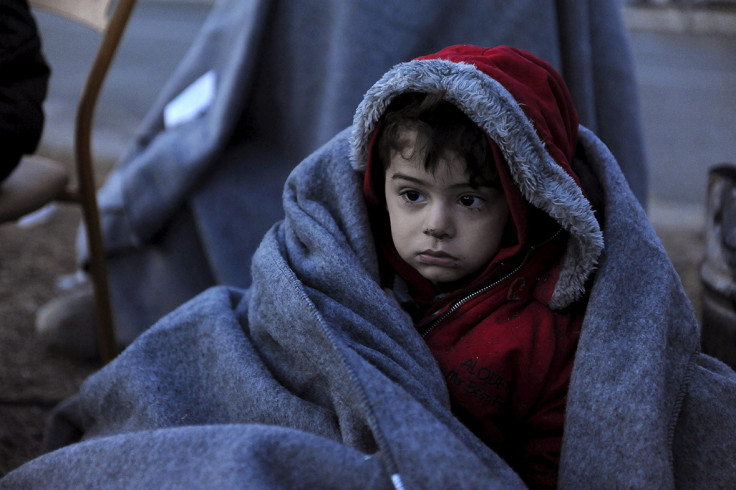Hundreds of Afghan migrants stranded after Macedonia closes border with Greece

Hundreds of Afghan migrants have been left stranded in Greece after Macedonia closed its southern border to them, allowing entry for only Iraqis and Syrians. Greek police said 800 were stranded at the border on 21 January and another 2,750 were waiting in 55 buses nearby.
In a change from their previous strategy, Macedonian police began conducting body searches and demanding passports from migrants, whereas in the past they had accepted official documents from Greek police attesting that individuals had been processed.
The move was apparently triggered by a similar decision from Serbian authorities to close their border with Macedonia, leaving almost 370 people trapped there.
Croatia has also recently implemented measures to prevent undocumented migrants from entering the country, despite the fact that many pass through the Balkan states to wealthier Western European countries such as Germany and France.
The moves are likely to create backlogs across Europe, where countries are taking increasingly tougher stances on those trying to enter the country.
Austria recently said it would impose a daily limit on the number of migrants and refugees entering its territory and impose stricter border controls.
The measures which came into effect on 19 February capped the number of migrants allowed to travel through the country every day to 3,200 while the number of asylum claims it receives has been limited to 80.
The country has seen a rise in the number of migrants and asylum seekers over the past year, most of them entering from Slovenia and Hungary.
The government says it accepted around 90,000 asylum applications in 2015 and plans to reduce this to 37,500 this year. However, the majority of refugees who enter Austria do not stay there and travel through its territory to Germany and beyond.
"Austria is among the EU countries most under strain and is reaching breaking point," said Interior Minister Johanna Mikl-Leitner. "It stands to reason to want to secure your own borders when there is no European solution."
She added: "We must apply the brakes step by step."
© Copyright IBTimes 2025. All rights reserved.




















